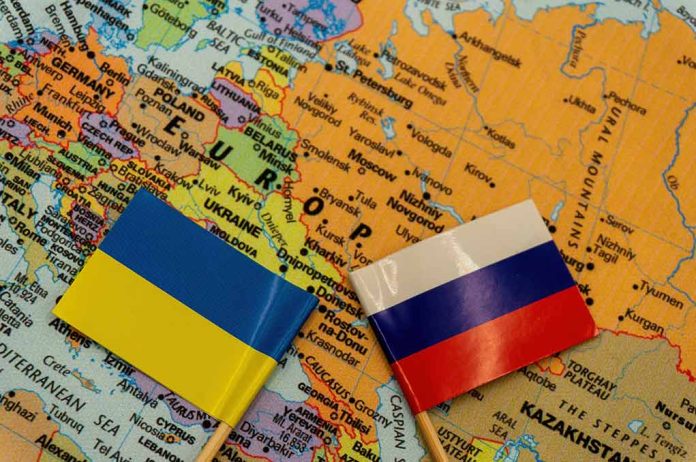
In a climate rife with geopolitical tensions, Russia now accuses the United States of encouraging attacks on the crucial TurkStream pipeline amid the ongoing conflict in Ukraine.
At a Glance
- Russia alleges Ukraine carried out a drone attack on the TurkStream pipeline.
- Russia accuses the U.S. of encouraging the attack.
- U.S. sanctions on Russia escalate tensions.
- TurkStream is vital for Russian gas flow to Europe.
Russia’s Accusations
Russia accused Ukraine of executing a drone attack on the TurkStream gas pipeline infrastructure, aiming to sabotage a significant energy conduit. Russian Foreign Minister Sergey Lavrov then claimed the U.S. is encouraging Ukraine to disrupt the critical infrastructure. “The U.S. does not tolerate competition in any sphere, including energy. They are recklessly endorsing terrorist activities aimed at undermining the energy stability of the European Union,” Lavrov said.
The allegation comes after past incidents involving Nord Stream, suggesting a pattern of accusations from Russia towards Western influence in pipeline sabotage. Ukraine has remained silent on the latest charges, leaving a gap in discourse amid this severe diplomatic tension.
Russia’s defense reported nine Ukrainian drones targeted a compressor station near the Black Sea associated with TurkStream, all intercepted with minimal damage to infrastructure. The Kremlin has labeled these actions as acts of terrorism against its energy systems, further accusing the U.S. of exacerbating global instability with stringent sanctions on Russia’s oil sector. These events unfold as Europe’s alternate energy supplies are questioned, with Hungary being dependent on TurkStream, while others secure different sources post the January transit disruption through Ukraine.
Russian Defense Ministry says Ukraine launched drone attack on infrastructure of TurkStream gas pipeline, which carries Russian gas to Europe via Türkiye, claiming "goal was to halt gas supplies to European countries"https://t.co/S7EM6k1GD2
— Daily Sabah (@DailySabah) January 14, 2025
Impact of Sanctions
The U.S. recently imposed new sanctions targeting Russia’s oil industry, impacting Gazprom Neft and a fleet of shipping vessels. According to Kremlin spokesman Dmitry Peskov, “Such decisions cannot but lead to a certain destabilisation of the global energy market.” These sanctions further strain U.S.-Russia relations amid claims of geopolitical meddling. Meanwhile, European nations continue to adjust to evolving energy dynamics, reducing dependency on Russian gas with mixed success. Despite pipeline disruptions, liquefied natural gas imports from Russia have reportedly increased, illustrating Europe’s intricate balancing act between sanctions and energy needs.
European Energy Security
As tensions intensify, Europe grapples with the long-standing consequence of reducing dependence on Russian energy sources. The TurkStream pipeline is pivotal for the current energy strategy, amid Ukraine’s gas transit halt sparking higher costs and contentious dialogue. In light of these developments, the leveraging of alternative energy routes and sources might dictate future strategies in maintaining a secure and stable energy supply across Europe, a topic warranting vigilant monitoring as it unfolds.
Russia claimed downing over 200 Ukrainian drones amid these security threats, reflecting the ongoing defensive posture Russia adopts against perceived hostilities. Diplomatically, this places Eastern Europe on a precarious footing, casting a broader shadow over the already strained relations between these key global players.
Sources
- Russia says Ukraine targeted infrastructure of gas pipeline to Turkey
- Russia’s Lavrov accuses US of seeking to cut TurkStream gas pipeline
- Russia says US wants to disable TurkStream after alleged Ukraine attack
- Russia accuses US and Ukraine of targeting TurkStream gas pipeline













